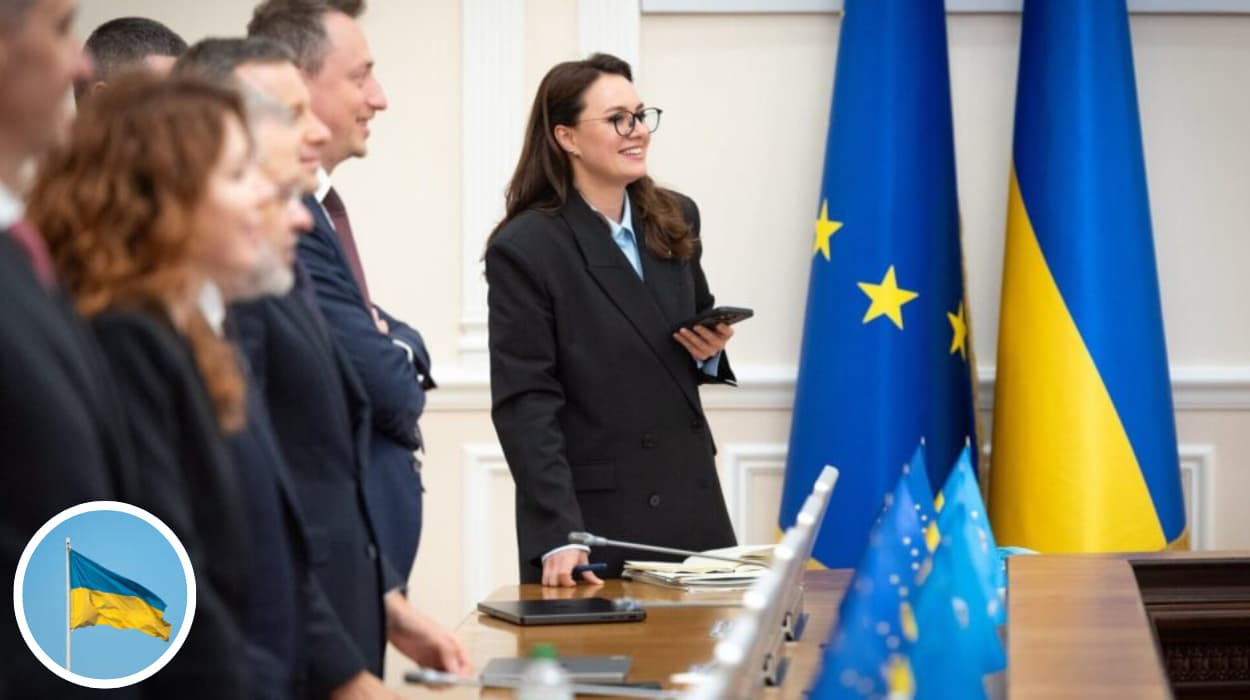Summary
- Oleksandr Tsyvinsky, a former anti-corruption investigator, is named head of Ukraine’s Economic Security Bureau (ESBU).
- Prime Minister Yulia Svyrydenko announced the appointment on August 6, 2025.
- Tsyvinsky passed strict vetting, including a polygraph test.
- The appointment was delayed due to concerns about Tsyvinsky’s family ties to Russia.
- The delay caused conflicts between the government, an independent committee, and Western partners like the EU and IMF.
- The ESBU had no leader since April 2023, blocking Ukraine’s Western funding and reform efforts.
- Protests and calls from anti-corruption groups pressured the government to act.
- Kyiv reversed laws that threatened anti-corruption bodies’ independence after public backlash.
- Tsyvinsky’s appointment aims to boost economic governance and regain Western trust.
- This move strengthens Ukraine’s resistance against Russian aggression.
Why Did Ukraine Delay the Appointment of Its Economic Security Bureau Chief?
As detailed by Reuters’ reporting, Ukraine’s government delayed appointing a new chief for the Economic Security Bureau for several weeks, risking the country’s access to critical wartime assistance from international lenders. Prime Minister Yulia Svyrydenko, who was sworn in last month, announced on August 6, 2025, that Oleksandr Tsyvinsky—a seasoned anti-corruption investigator—had been confirmed after thorough scrutiny, “including successful polygraph examination.” Svyrydenko stated on social media, as reported by Reuters, “There are no doubts about his candidacy”.
The back-and-forth began after the Security Service of Ukraine (SBU) flagged concerns over Tsyvinsky’s estranged father’s Russian citizenship, which the previous government used as grounds to block the appointment on July 7. The Kyiv Independent reported that this delay drew the ire of both the independent selection committee (which unanimously backed Tsyvinsky) and Ukraine’s Western partners, who saw the government’s actions as contrary to the law establishing the bureau.
How Did International Pressure Influence Ukraine’s Decision?
As reported by the Kyiv Independent and Devdiscourse, the European Commission and the International Monetary Fund (IMF) were outspoken about the need for Kyiv to swiftly confirm the selection committee’s nominee. The commission stated in a letter (seen by the Kyiv Independent),
“We consider this [the government’s reversal of the appointment] to be blatant manipulation and evidence that the Security Service of Ukraine has no information about the real risks of appointing Tsyvinsky.”
Brussels further highlighted the appointment as a benchmark for Ukraine’s reform and EU integration.
The IMF imposed a July 31, 2025, deadline for Ukraine to make the appointment to remain compliant with financial aid requirements. Business groups, including the American Chamber of Commerce in Ukraine, publicly declared their support for the timely implementation of the bureau reform, emphasizing the significance of transparent and predictable legal frameworks for continued investment.
What Was the Public Response Within Ukraine?
Public outcry over the delayed appointment was substantial. According to Atlantic Council’s Ukraine Alert, thousands marched in Ukraine’s first major protests since Russia’s full-scale invasion, sparked initially by a July law that threatened the independence of anti-corruption agencies. The Kyiv Independent revealed the government ultimately repealed this law after widespread backlash and further protests, some of which directly called for Tsyvinsky’s appointment.
Ukraine’s civil society, long recognized for its commitment to democratic principles post-2014’s Revolution of Dignity, once again proved influential. More than 60 Ukrainian civil society and business groups demanded the government follow through with the committee’s choice, framing the appointment as a critical step in Ukraine’s fight for the rule of law and good governance.
What Is the Significance of Oleksandr Tsyvinsky’s Appointment?
Devdiscourse and Reuters emphasized that Tsyvinsky’s appointment, following a vetting process that included passing a polygraph test, aims at resetting the agency’s reputation. The ESBU, established in 2021 to investigate economic crimes, has faced persistent allegations of inefficiency, politicization, and lack of independence. Critics saw Tsyvinsky’s selection as an opportunity for reform and alignment with EU standards.
Prime Minister Svyrydenko, as cited by Reuters and Devdiscourse, said, “It is vital that economic interactions in Ukraine are not skewed by illicit schemes and that businesses can rely on respect and collaboration from the state.” Svyrydenko announced further efforts to reduce business pressures stemming from law enforcement—an area watchdogs and western diplomats flagged as problematic.
How Does This Appointment Affect Ukraine’s Relations With the West?
As noted by Reuters and cited through various outlets, Tsyvinsky’s appointment allows Ukraine to fulfill a core condition for ongoing support from the EU and IMF. The European Commission stated, per Eurointegration and the Kyiv Independent,
“Kyiv should appoint the director of the Economic Security Bureau of Ukraine swiftly and in line with the ESBU reform law and applicable selection and appointment procedures. This is essential to advance the ESBU reform and ensure its independent and effective functioning.”
Western backing remains critical as Ukraine continues to defend itself against Russian aggression. Reforming its anti-corruption bodies and economic agencies has become more than just a matter of governance; it is a vital dimension of Ukraine’s wartime resilience and aspirations to join European institutions. With the economic security chief now in place, Kyiv aims to restore confidence among Western investors and policymakers and reassert its promises of reform and transparency.
What Are the Next Steps for Ukraine’s Reform Agenda?
Looking forward, the appointment of Oleksandr Tsyvinsky is only one piece of a broader reform agenda. As stressed by Atlantic Council commentators and echoed in Ukrainian independent media, Ukraine faces ongoing pressure to consolidate anti-corruption reforms, guarantee the independence of key agencies, and resist attempts to backslide on progress achieved since 2014.
Polygraph tests, like the one Tsyvinsky passed, have become a hallmark of President Volodymyr Zelensky’s attempts to demonstrate transparency—though some experts question the efficacy of such measures. New legislation mandates regular polygraph examinations for state employees with access to secrets, a sign of Kyiv’s attempts to counter lingering concerns about Russian influence post-invasion.
Ultimately, as underscored by recent protests and international commentary, Ukraine’s reform drive must persist. Maintaining a reputation for transparency and rule-of-law remains crucial to both its European dream and its sovereign struggle against Moscow.

